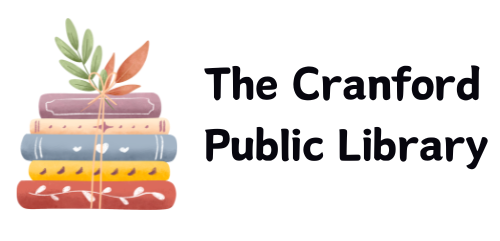
Native Seed Library at the Cranford Public Library
About the Collection
The Cranford Public Library hosts a Native Seed Library where seeds are made available to community members at no cost. Startup funds for the collection came from New Jersey American Water’s 2022 Environmental Grant. Generally speaking, native plants are those that occur naturally within a region without human intervention. Our hope is that ready, affordable access to native plants will encourage the community to favor plants that support biodiversity.
Each seed packet contains a small amount of starter seeds. To ensure that seed packets are available to as many community members as possible, we ask that patrons take only what they need and limit themselves to three seed packets per week.
Seeds marked with a green dot have been sourced from a nursery. Those marked with a yellow dot were donated by community members.
Donations
We accept donations of native plant seeds, please fill out a donation form and return it with your donation. Native plants are species that occur naturally within a region without human intervention. We are interested in straight species, not cultivars. If you're unsure of the status of a plant, we recommend finding more information on one of the websites listed below.
Programs
We offer a variety of programs in conjunction with our seed library! Thanks to the support of the Friends of the Library, all of these programs are free. Visit our calendar to see all upcoming events.
References
Pinto, Deborah and Melendez, Meredith. “Incorporating Native Plants in Your Residential Landscape.” FS1140: Incorporating Native Plants in Your Residential Landscape, Rutgers New Jersey Agricultural Experiment Station (NJAES) Cooperative Extension, https://njaes.rutgers.edu/fs1140/
Native Plant Resources
The Biota of North America Program (BONAP) http://www.bonap.org/: Interested in finding out whether a plant is native to your area? BONAP maintains the North American Plant Atlas (NAPA), which contains county-level distribution maps of most plant species recorded in North America.
Jersey-Friendly Yards, https://www.jerseyyards.org/: Jersey Yards maintains a database of "jersey-friendly" plants, public gardens who host native plants, vendors of native plants, and more.
Invasive Species Strike Team, https://www.fohvos.info/invasive-species-strike-team/: Learn more about invasive species, why they pose a threat to native species, and how to eradicate them.
National Wildlife Federation, Native Plants for Wildlife, https://www.nwf.org/Garden-for-Wildlife/About/Native-Plants: The National Wildlife Federation maintains the Native Plant Finder, a tool based on the research of Dr. Douglas Tallamy of the University of Delaware and in partnership with the United States Forest Service.
Native Plant Society of New Jersey (NPSNJ), https://www.npsnj.org/: The Native Plant Society of New Jersey is a statewide non-profit organization dedicated to the appreciation, protection, and study of the native flora of New Jersey. NPSNJ maintains a list of native plant vendors, conducts regular lectures and presentations, and have helped establish native plant gardens around the state. Find out more on their website.
Rutgers Master Gardeners of Union County: The Master Gardeners operate a Garden Helpline that residents can call or email with their gardening questions. They are trained to use University research-based resources to provide unbiased information to home gardeners. Master Gardeners can be reached at (908) 654-9852 or by email at mastergardeners@ucnj.org.
Rutgers Cooperative Extension of Union County, https://bit.ly/3LZj90S: Rutgers New Jersey Agricultural Experiment Station (NJAES) Cooperative Extension county offices provides information and assistance regarding 4-H, agriculture, natural resources, and the environment.
USDA PLANTS Database, https://plants.usda.gov/home: The United States Department of Agriculture maintains the Plant List of Accepted Nomenclature, Taxonomy, and Symbols (PLANTS) Database. Find standardized information about provides standardized information about the vascular plants, mosses, liverworts, hornworts, and lichens of the U.S. and its territories. You can search by geographic area to find plants from Union County.



